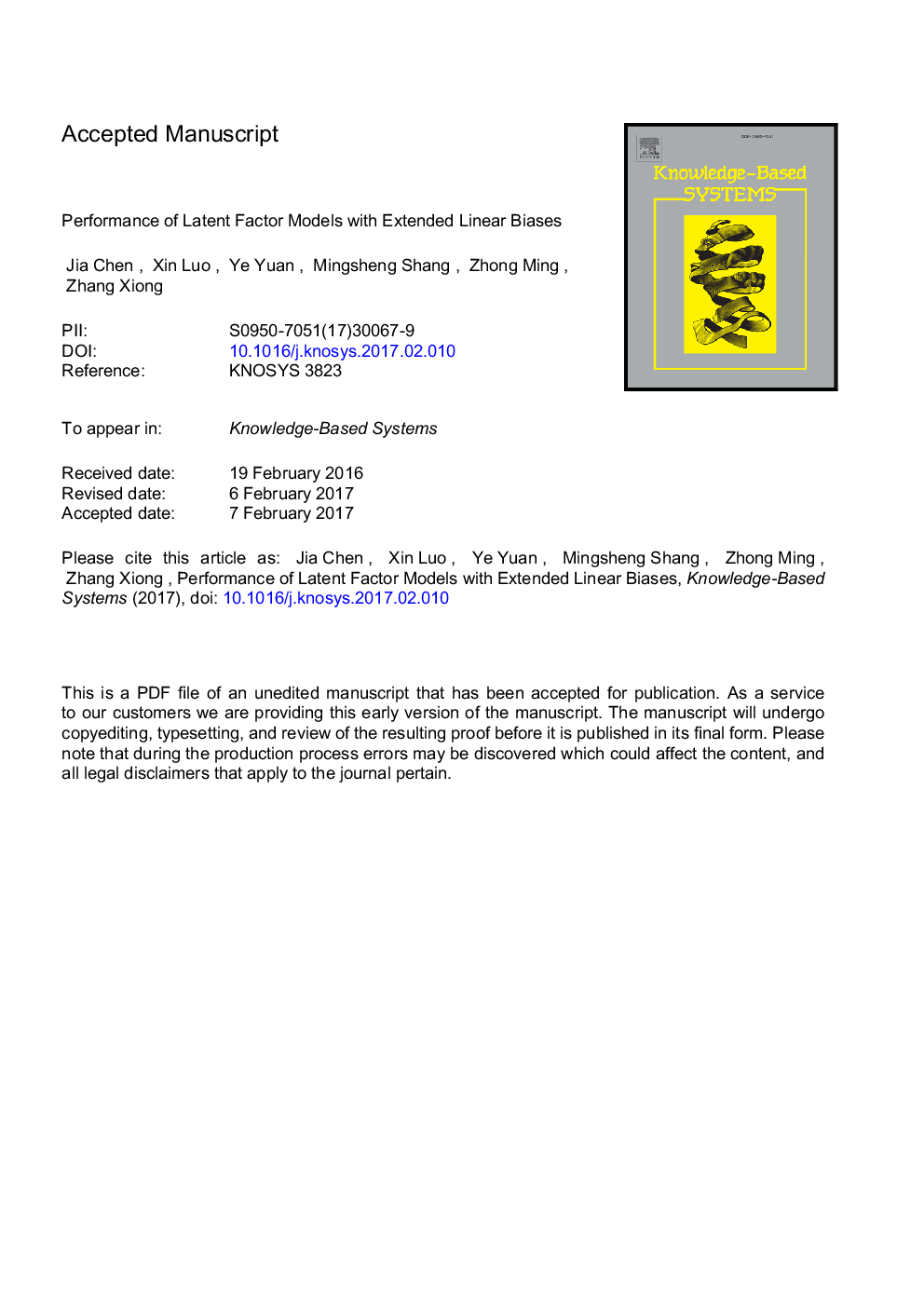| کد مقاله | کد نشریه | سال انتشار | مقاله انگلیسی | نسخه تمام متن |
|---|---|---|---|---|
| 4946306 | 1439278 | 2017 | 17 صفحه PDF | دانلود رایگان |
عنوان انگلیسی مقاله ISI
Performance of latent factor models with extended linear biases
ترجمه فارسی عنوان
عملکرد مدل های فاکتور ناپیوسته با تعصبات خطی طولانی
دانلود مقاله + سفارش ترجمه
دانلود مقاله ISI انگلیسی
رایگان برای ایرانیان
کلمات کلیدی
اطلاعات بزرگ، سیستم توصیه شده، مدل عامل دلپذیر، تعصب خطی، کاربرد صنعتی،
موضوعات مرتبط
مهندسی و علوم پایه
مهندسی کامپیوتر
هوش مصنوعی
چکیده انگلیسی
High-dimensional and sparse (HiDS) matrices are frequently encountered in various industrial applications, due to the exploding number of involved entities and great needs to describe the relationships among them. Latent factor (LF) models are highly effective and efficient in extracting useful knowledge from these HiDS matrices. They well represent the known data of a HiDS matrix with high computational and storage efficiency. When building an LF model, the incorporation of linear biases has proven to be effect in further improving its performance on HiDS matrices in many applications. However, prior works all propose to assign a single bias to each entity, i.e., a single bias for each user/movie from a user-movie HiDS matrix. In this work we argue that to extend the linear biases, i.e., to assign multiple biases to each involved entity, can further improve an LF model's performance in some applications. To verify this hypothesis, we first extended the linear biases of an LF model, and then deduced the corresponding training rule of involved LFs. Subsequently, we conducted experiments on ten HiDS matrices generated by different industrial applications, evaluating the resulting LF models' prediction accuracy for the missing data of involved HiDS matrices. The experimental results indicate that on most testing cases an LF model needs to extend its linear biases to achieve the highest prediction accuracy. Hence, the number of linear biases should be chosen with care to make an LF model achieve the best performance in practice.
ناشر
Database: Elsevier - ScienceDirect (ساینس دایرکت)
Journal: Knowledge-Based Systems - Volume 123, 1 May 2017, Pages 128-136
Journal: Knowledge-Based Systems - Volume 123, 1 May 2017, Pages 128-136
نویسندگان
Chen Jia, Luo Xin, Yuan Ye, Shang Mingsheng, Ming Zhong, Xiong Zhang,
